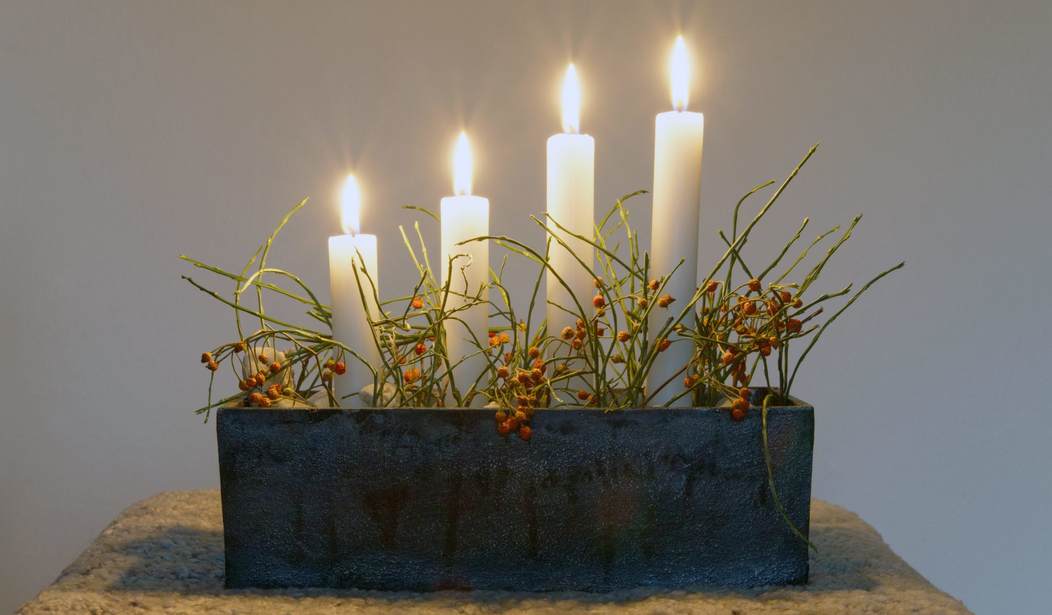Readers of a certain age will remember the old ketchup commercial featuring the Carly Simon song “Anticipation.” So thick and rich was the ketchup that its tardy descent from the bottle was advertised as an almost unbearably slow build-up to the desired final reward.
By the fourth Sunday in Advent, that’s where we are – waiting, waiting, waiting, right on the verge of seeing The Promise fulfilled.
As this week’s Old Testament reading from the book of Micah (5:2-5A) reminds us, it was a promise 700 years in the making – a promise of redemption from the least of the Hebrew towns, Bethlehem:
“But you, O Bethlehem of Ephrathah, who are one of the little clans of Judah, from you shall come forth for me one who is to rule in Israel, whose origin is from of old, from ancient days. Therefore he shall give them up until the time when she who is in labor has brought forth.”
Micah’s contemporary, Isaiah, likewise was interpreted in numerous instances to have foretold the coming of a redeemer in just such a way.
In the Gospel reading of the Magnificat, Mary – rejoicing with her cousin Elizabeth about both of their miraculous pregnancies, in apparent defiance of the laws of nature – recalls those prophecies: The Lord “has helped his servant Israel, in remembrance of his mercy, according to the promise he made to our ancestors, to Abraham and to his descendants forever.”
(Not to belittle the majesty of this, but it is sweetly ironic that Carly Simon’s song includes this line: “I’m no prophet: I don’t know nature’s way.”)
Seven hundred years is an awfully long time to wait for redemption. Indeed, just four weeks of Advent readings can seem like an awfully long time to wait for Christmas to arrive. It has been four weeks of reading about hopes maintained despite seven centuries of a people’s turmoil, seven centuries of disappointment and repeated calamities. (Psalm 80, appointed for this week, mentions “the bread of tears… bowls of tears to drink” amidst the “derision of our enemies” and even their “scorn.”)
Yet, the people of Israel and Judah did wait that long; they faltered but never entirely failed: Even in the worst of times, at least a remnant always kept the faith. Always, always, always some of the people kept alive the flame in anticipation of the day when, promised Micah, “the rest of his kindred shall return to the people of Israel.”
And to what end? Would the wait be worth it?
Well, for those of us who believe in the saving power of the Christ of Bethlehem, the wait was indeed worth it. We are almost, almost, almost to the point where we can recognize, with Mary, that God’s “mercy” can fall on those who have kept belief alive “from generation to generation.”
We’re not there yet. But the ketchup commercial again provides the lines that, later this week, we all will be uttering. To the apology from the girlfriend that she is “sorry you had to wait,” the boyfriend’s answer, and ours, is “I’m not.” And then comes the tag line: “The taste that’s worth the wait.”
May we all experience that joyful taste this Christmas.
Quin Hillyer is a veteran conservative columnist. He has an undergraduate degree in Theology from Georgetown University and has served for years in various forms of ecumenical lay leadership.









Join the conversation as a VIP Member